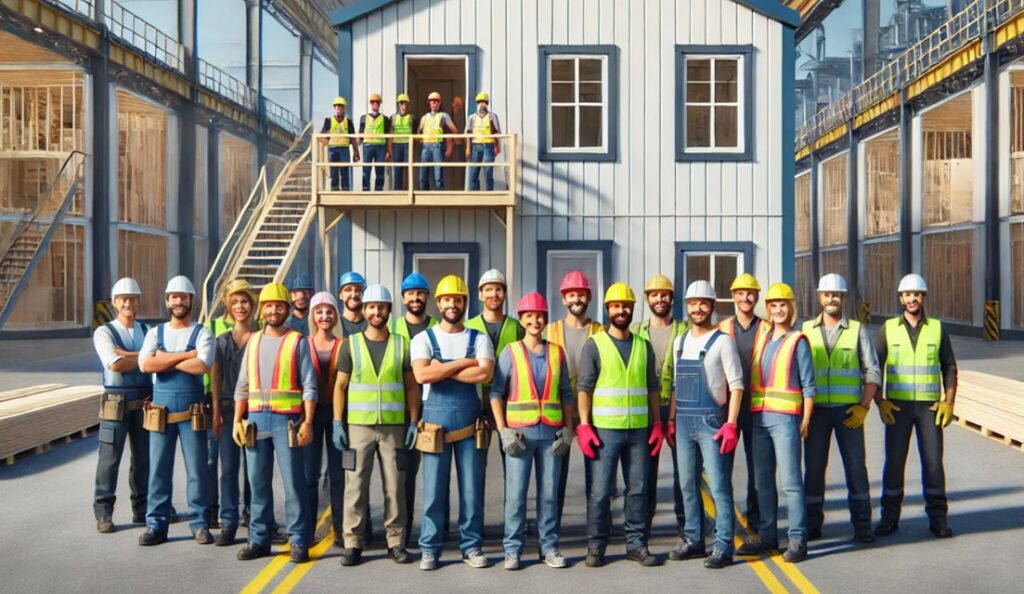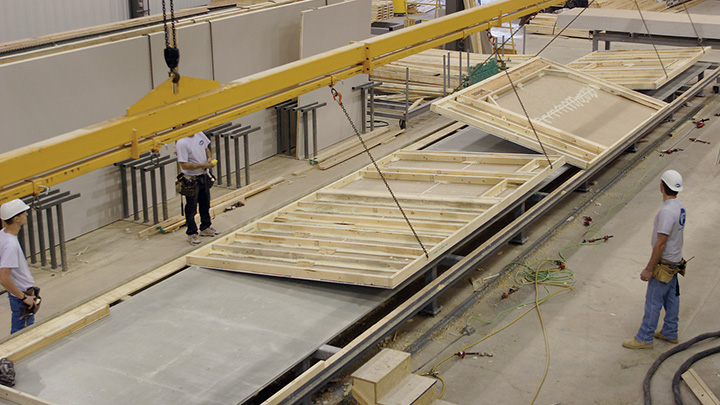In the world of offsite construction and modular manufacturing, the production line is the heart of the operation. It hums with the energy of skilled workers, precise timing, and teamwork. Yet, in many factories, a dangerous gap persists between management and the people who physically build the product. Over the years, some of the most ill-advised comments from factory owners have trickled out, revealing an alarming disconnect. These misguided statements not only show a lack of appreciation for the workforce but also threaten the long-term success of the business. Let’s explore some of the most egregious examples.
“They’re just labor; anyone can do this job.”
This sweeping dismissal of production line workers undermines the specialized skills and precision many of them bring to the table. While the work may appear straightforward to outsiders, experienced employees possess a deep understanding of the processes and tools that keep the line running efficiently. Overlooking this expertise can lead to costly mistakes and delays when turnover inevitably happens.
“If they don’t like it, they can leave—there are plenty more where they came from.”
In an industry grappling with a skilled labor shortage, this comment is both tone-deaf and self-defeating. Replacing workers isn’t as easy as it sounds. Training new hires costs time and money, and frequent turnover drags down productivity. When workers feel replaceable, they’re less likely to invest themselves in the job—a recipe for poor morale and subpar work.
“Robots will replace all of them soon anyway.”
Automation is transforming manufacturing, but it’s not a magic wand that eliminates the need for human input. Even the most advanced systems require skilled workers to program, monitor, and maintain them. Besides, this comment reflects a fundamental misunderstanding of the current capabilities of technology and alienates workers who already fear being replaced.
“They don’t care about the company; they’re only here for the paycheck.”
It’s true that wages matter, but many production workers also take pride in their craft and want to feel valued. When owners dismiss their employees’ potential for loyalty or engagement, they miss an opportunity to build a stronger, more committed team. It’s a self-fulfilling prophecy: treat workers as if they don’t care, and they won’t.
“Why should we listen to them? They’re not engineers.”
Production line workers often spot inefficiencies or potential improvements that managers and engineers overlook. Ignoring their input stifles innovation and fosters resentment. After all, they’re the ones who interact with the product daily and understand the nitty-gritty details that can make or break a production cycle.
“They’re lucky to have a job.”
In today’s competitive job market, workers aren’t beholden to employers who fail to respect them. This antiquated mindset assumes workers have few other options, but the reality is quite different. Treating employees as if they owe their employer gratitude instead of receiving mutual respect is a fast track to high turnover.
“We don’t need to train them; they’ll figure it out.”
Cutting corners on training is not just a disservice to employees but a liability for the entire operation. Poorly trained workers are more likely to make mistakes, causing rework, delays, and safety hazards. Investing in proper training ensures smoother operations and fewer costly disruptions.
“They should stop complaining—we didn’t have these luxuries back in my day.”
This “back in my day” rhetoric does nothing to address modern workplace challenges. Workers today expect fair wages, safe working conditions, and opportunities for growth. Comparing their current needs to outdated standards only alienates employees and ignores the progress the industry has made.
“We can’t afford to give them raises; the business needs to come first.”
A business that neglects to fairly compensate its workforce is shooting itself in the foot. Competitive pay is essential for attracting and retaining top talent, and it’s a small price to pay compared to the costs of constant hiring and training due to turnover.
“It’s not like they’re building rocket ships.”
This flippant remark trivializes the hard work and skill required to produce high-quality products. Whether it’s assembling homes, components, or other goods, production workers play a critical role in delivering a final product that meets customer expectations.
Why These Comments Matter
These statements aren’t just words—they reflect attitudes that can erode a factory’s foundation. Disrespecting workers leads to low morale, high turnover, and missed opportunities for innovation. Moreover, it damages a company’s reputation, making it harder to recruit skilled labor in an already competitive market.
The most successful factories are those where management values and invests in their workforce. Workers who feel respected, heard, and fairly compensated are more likely to take pride in their work and go the extra mile. As the offsite construction industry continues to evolve, factory owners must recognize that their employees are their greatest asset—not just a cost to be minimized.
The production line may not build rocket ships, but it does build homes, communities, and futures. It’s time for factory owners to shift their mindset, leaving these “dumb” comments behind and fostering a culture that values the contributions of every worker on the line.













Reader interactions
One Reply to “The Dumbest Things Factory Owners Have Said About Their Production Line Workers”
I totally agree 👍 people are the greatest asset of your business. The value of your business is driven by the team you have. Starting from the shift worker to the top management. If you don’t value your team you must start to appreciate them and value them as asset before it’s too late.